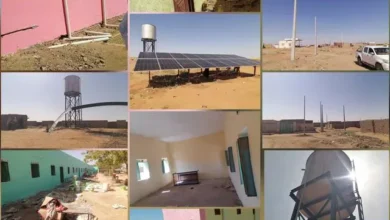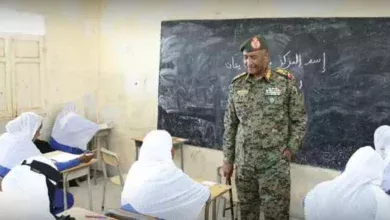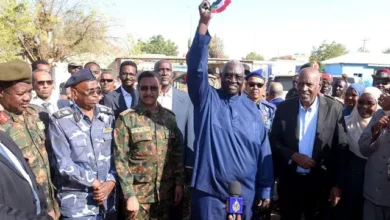In response to the concept of State 56 – a whale spine – ✍️ Yasser Muhammad Mahmoud Al-Bishr

*Professor Yasser Muhammad Mahmoud, in response to what was said in your column (Whale's Thorn) of 08/09/2024, entitled (The Concept of a 56 State), I see that it contains important and useful information and can be discussed in a clear and transparent manner because it represents the true complexity of Sudan's current and future problems if we go beyond the past*.
*Your first analysis can be said to be a correct analysis and we agree with you on this and it is excellent, but your justification that the people of the North achieved what they achieved through their race and education contradicts historical facts and sound logic. What is missing in your analysis, Yasser, is that the state of 1956 was not established in 1956, but rather on the day of the defeat of the Ansar at Karari in 1898, after the victory of the invaders who arrived on the outskirts of Omdurman. the shoulders of some northerners who cooperated with the British and the Egyptians to thwart Caliph Abdullah. The British empowered the northerners as a reward for their help in invading Sudan. Families like the Mirghani family were rewarded and empowered to do so. They should not really be a party calling for unity with… Egypt*.
*This situation is similar to that of the Americans when they invaded Iraq and rewarded the Shiite elements to the detriment of the Sunnis, with the difference that the Shiites are in the majority while the peoples of the North are considered a minority compared to the rest. The British and the Egyptians continued to reward the peoples of the North by educating them, empowering them in the army and state administration and bringing them closer to power, and at the same time, they worked to eliminate them. The Western peoples and the marginalized who supported the Mahdi, as well as the British and those who helped them, practiced the policy of collective punishment of the Western peoples by preventing them from gaining power. On the contrary, many obstacles were placed, including restricting travel. , and as Imam Abdul Rahman al-Mahdi himself learned, his movements were restricted for a long time, as were the movements of Western peoples, as well as many other types of… Negative discrimination against Western peoples and Central, including the Blue Nile, Gezira and White Nile regions*.
*This does not mean that the northern regions benefited from development. The north itself remained underdeveloped, but its inhabitants found work in the country's capital. The geographical location and proximity to Egypt had better educational opportunities than the rest of the other regions, but colonialism provided them with opportunities for political decision-making, and this situation did not change after independence, and the decision of the army, controlled by the northern elites, remained a “thorn of the whale” for any situation that allowed the peoples of the West to access power through the ballot box, which could have helped to eliminate the imbalance of the state. . If we must know The Roots of the State 56 We are not dealing with the superficial form of the crisis*.
Mahdi Omar Hamed
The United States of America.
Half a fork
*Thank you, Professor Mahdi, for this proposal. It also represents a true and objective opinion and a recognition of the existence of a Sudanese problem that has been kept silent. It began with the dialectic of the margin and the center and ended with what is known as the 1956 state. We must say that the solution to the problem lies in its existence, and let us make this conversation a step on the path to the solution.*
A quarter of a fork
*The issue of the concentrated margin or the concept of the State of 56 will not remain an issue to be spoken about clearly and boldly until the wounded nation recovers*.






